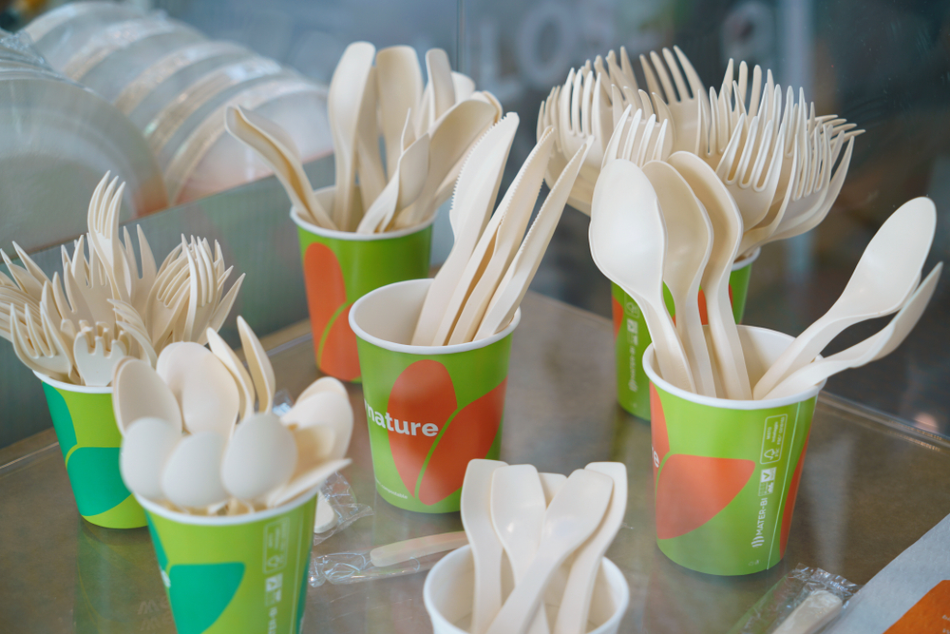May 21 2020
Researchers from the Universities of Birmingham and Bath have designed a more rapid and more effective way of recycling plant-based “bioplastics.”

Image Credit: MikeDotta/Shutterstock.com
The researchers have demonstrated that their chemical recycling technique not just accelerates the process but also enables it to be transformed into a new product, a biodegradable solvent that can be sold for use in an extensive range of industries such as pharmaceuticals and cosmetics.
Bioplastics are produced from polylactic acid (PLA). They are more commonly used in products such as packaging materials, disposable cups, and even children’s toys. In general, once they come to the end of their service life, they are either composted or disposed of in landfills. They take several months to biodegrade.
In the latest study, scientists have demonstrated that a chemical process, which involves using a zinc-based catalyst created at the University of Bath and methanol, can be used to disintegrate real consumer plastics and generate the green solvent, known as methyl lactate. The study outcomes were reported in the Industrial & Engineering Chemistry Research journal.
The new technique was tested on three separate PLA products: a children’s toy, some 3D printer waste, and a disposable cup. They identified that the cup was most easily transformed into methyl lactate at lower temperatures, but even the heavier plastic in the children’s toy could be transformed at higher temperatures.
We were excited to see that it was possible to obtain high quantities of the green solvent regardless of samples' characteristics due to colorants, additives, sizes and even molecular weight.
Luis Román-Ramírez, Study Lead Author, School of Chemical Engineering, University of Birmingham
According to Joe Wood, Professor and lead researcher from the University of Birmingham, “The process we’ve designed has real potential to contribute to ongoing efforts to reduce the amount of plastic going into landfill or being incinerated creating new valuable products from waste.”
Our technique breaks down the plastics into their chemical building blocks before ‘rebuilding’ them into a new product, so we can guarantee that the new product is of sufficiently high quality for use in other products and processes.
Joe Wood, Professor, University of Birmingham
The new chemical process has been tested for synthesizing up to 300 ml. The subsequent steps would be to scale up the reactor more before it can be employed in an industrial setting. The study was financially supported by the Engineering and Physical Sciences Research Council.
Journal Reference:
Román-Ramírez, L. A., et al. (2020) Chemical Degradation of End-of-Life Poly(lactic acid) into Methyl Lactate by a Zn(II) Complex. Industrial & Engineering Chemistry Research. doi.org/10.1021/acs.iecr.0c01122.